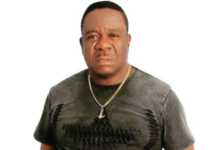Messy toddlers could actually be better off than their tidy counterparts, a new study has revealed.
Scientists suggest that making a mess with food actually helps small children to learn and is good for their developing brains.
The approach is most effective when the child is placed in a high chair, which is generally seen by youngsters as a cue to get messy.
Psychologist Larissa Samuelson, an expert in child learning from the University of Iowa, said: “It may look like your child is playing in the high chair, throwing things on the ground, and they may be doing that, but they are getting information out of those actions. And, it turns out, they can use that information later.”
Previous research has shown that toddlers are quicker to learn about solid objects due to their unchanging size and shape.
The mess method helps them identify and name non-solid materials that can be prodded, squished, thrown about and shoved in the mouth.
Dr Samuelson’s team tested the idea by exposing 16-month-old children to 14 non-solid objects, mostly food items such as apple sauce, jelly, juice, ketchup, and soup.
Each object was given a made-up word such as “dax” or “kiv”. Later, the children were asked to identify the same items arranged in ways that made their size and shape look different.
It meant the toddlers had to do more than rely simply on initial size and shape and to explore what the substances were made of.
The children went at the experiment with gusto, so that much of the material they were asked to investigate ended up on their faces and the laboratory floor.
Those who interacted most with the foods were more likely to identify them correctly by their texture and name them.
Children sat in a high chair were more successful than those in other locations, such as being seated at a table, the researchers found.
“It turns out that being in a high chair makes it more likely you’ll get messy, because kids know they can get messy there,” said Dr Samuelson.
The researchers, who report their findings in the journal Developmental Science, claim the study shows how behaviour and environment help children acquire an early vocabulary. This in turn is linked to better mental development and functioning.
A total of 72 children took part in the study, each of whom was rewarded with a toy for participating.




